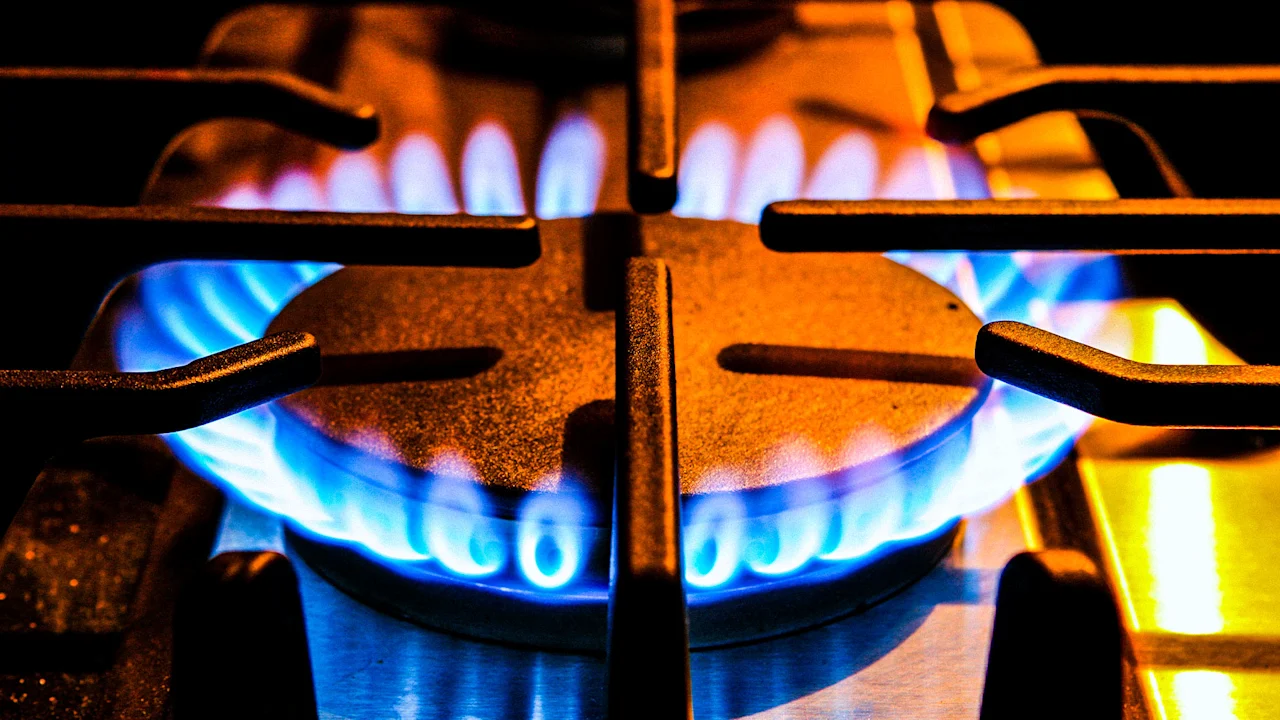Colorado just became the first state to add warning labels to gas stoves. Could your state could be next?

Whenever someone in Colorado shops for a gas stove, whether in person or online, they’ll now see a yellow label that warns them about the air quality impacts. It’s a move meant to highlight the health risks of cooking with gas, and one a handful of other states are considering too.
Governor Jared Polis of Colorado signed the law requiring warning labels on gas stoves back in May, and it went into effect this month. Under the law, such warning labels must include a link or QR code to a state health department website about the health risks of gas stoves.
Gas stoves burn either natural gas or propane, which releases harmful pollutants like nitrous dioxide and carbon monoxide into the air inside your home. Hoods that vent away these emissions aren’t always required in building codes, and as our homes have become better sealed from the outside air—which is good for energy efficiency—that keeps indoor pollutants from dissipating.
Studies have compared the pollutants from gas cooking to secondhand smoke, and even linked gas stove to tens of thousands of cases of childhood asthma.
Colorado law and legal backlash
Colorado’s warning label law is the first of its kind in the U.S., though there are efforts underway in other states to add such warnings to gas stoves. The law is already facing a legal challenge; the Association of Home Appliance Manufacturers has filed a federal lawsuit claiming that requiring a warning label violates the First Amendment, and that the information about health risks is “misleading.”
Abe Scarr, the energy and utilities director with the U.S. Public Interest Resource Group (PIRG), contests those claims.
“This is a product that, when used as directed, puts your health at risk, and despite industry attempts to say otherwise, there’s no real scientific debate on that fact,” he says.
He also notes that requiring a warning label is not akin to a ban. “This is not to tell people, ‘don’t buy a gas stove,” he says. “It’s to say, if you’re going to use and operate a gas stove in your home, you should take precautions, like using proper external ventilation.”
That’s something most people may not actually be aware of, he adds.
U.S. PIRG did a consumer survey in which secret shoppers went into big box stores around the country to ask store employees about the health risks, the need for ventilation, or alternatives like induction stoves.
“We found that much of the time, consumers did not get information about these risks,” he says. “And so we think a warning label is an appropriate step.”
Other states considering gas stove warning labels
Colorado was the first state to affix a warning label to gas stoves, but it’s not the only one to have considered the move.
A proposal in New York (cosponsored by state assemblymember and mayoral candidate Zohran Mamdani) recently made it into the Assembly committee. Lawmakers in Massachusetts also recently introduced a warning label bill.
There have also been earlier attempts at gas stove warning label requirements that failed.
PIRG filed a bill calling for gas stove warning labels in Illinois in 2023, but it was a few votes short of passing. In 2024, such a bill landed on the desk of California Governor Gavin Newsom, but he vetoed it.
Though Scarr couldn’t speak to exactly why Newsom vetoed the bill, he says that the politics around gas stoves has been fraught.
Gas stoves ignited a nationwide conversation a few years ago when some politicians became outraged at the thought of a gas stove ban. In 2023, an official with the U.S. Consumer Product Safety Commission mentioned in an interview that gas stoves were a hidden hazard and that “any option is on the table,” to deal with that risk.
That official quickly clarified that he had no plans to ban gas stoves, but the comments had already set off a wave of backlash. One Texas congressman tweeted that he would “NEVER give up my gas stove.”
Still, both climate and health experts have sounded the alarm about gas stoves, and gas appliances in general.
In 2021, Energy Star announced that it wouldn’t recommend any gas appliances on its “most efficient” list moving forward. Gas furnaces, water heaters, and dryers have all faced scrutiny under the effort to “electrify everything” and get fossil-fuel appliances out of homes, and certain municipalities have also taken efforts to ban gas hookups completely in new construction buildings.
Scarr hopes that the Colorado law continues to raise awareness about the risk of gas stoves, and that more jurisdictions adopt warning labels. It’s not about limiting choice, he says, but about giving people information on a consumer product.
With gas stoves, he says, the risks are obvious: “You’ve got a methane flame unventilated in the middle of your kitchen, a fossil fuel. Of course there’s going to be air pollution.”
What's Your Reaction?
 Like
0
Like
0
 Dislike
0
Dislike
0
 Love
0
Love
0
 Funny
0
Funny
0
 Angry
0
Angry
0
 Sad
0
Sad
0
 Wow
0
Wow
0




























































































